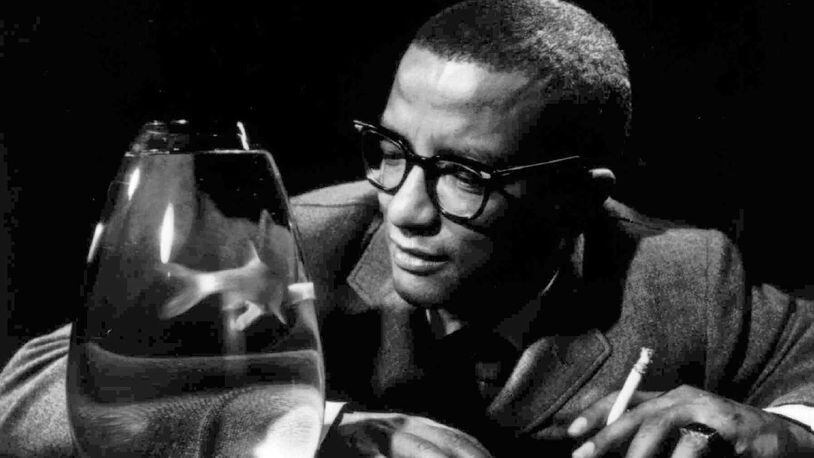At the start, he didn’t even have a name. (Now), virtually every jazz fan in America revered his music: Take the ‘A’ Train, Blues in Orbit, U.M.M.G., Chelsea Bridge, A Flower is a Lovesome Thing, Lotus Blossom, My Little Brown Book, Lush Life, Satin Doll, Paris Blues and Blood Count.
The songs, extended works and suites — many composed with his musical soul partner, Duke Ellington — are what many critics consider the greatest body of work in 20th-century American music.
Billy Strayhorn, frail little “Baby Boy Strayhorn” on his birth certificate, was born in Dayton early on Nov. 29, 1915, at Miami Valley Hospital. He lived out on Norwood Avenue with his folks, Lillian and James Strayhorn, and his older brother James.
Born with rickets, Billy was fragile. His parents didn’t name him at first, perhaps fearing that he would soon die, like an older brother and sister before him. Eventually, Lillian began to call him Bill, but the name on his birth certificate wasn’t changed to William until Strayhorn was almost 10.
In time, the family moved to Pittsburgh, where James found better work to support his growing family. Billy began to spend more and more time with Lillian’s mother, who was the pianist at her Baptist church. From the beginning, he was fascinated with the piano and his grandmother’s playing, and by the time he was in high school he’d worked and saved enough to buy a piano for himself.
Even in high school, Billy Strayhorn showed an unusual prowess for composing and arranging music. Just after graduation from Westinghouse High in 1935, Billy wrote and performed his first musical production, Fantastic Rhythm.
Still, he was intent on becoming a classically trained concert pianist until he met Ray Wood, a jazz musician with connections to the local jazz scene. Together, they began to write and perform songs in Pittsburgh clubs. Billy loved jazz. His reputation as a prodigy spread, and with it came work from other local musicians in need of clever arrangements for their own music.
In December 1938, Duke Ellington and His Orchestra began a weeklong date at the Stanley Theatre in Pittsburgh. Through an acquaintance, Billy Strayhorn met Duke in the famous bandleader’s dressing room after a late show one night.
Legend has it that Billy played Sophisticated Lady for Ellington precisely as Duke had done it during the show. Then Strayhorn played the famous song in his own style, jazzier and a bit faster.
Ellington called some of his band members into the room, and Billy played a couple more of Duke’s numbers, again in his own style. Ellington reportedly told Strayhorn to look him up if he ever made it to New York and gave the young pianist directions to his home in Harlem.
In January 1939, 23-year-old Billy Strayhorn met up again with Ellington, but this time he’d brought a song of his own to play for Ellington. He’d taken a line from the directions to Harlem and entitled the piece, Take the ‘A’ Train. Ellington adopted the tune as the theme for his band, and a partnership was forged.
Thereafter, until Strayhorn’s death in 1967, the two musicians composed, arranged and performed jazz that transformed modern American music. By their own accounts, Ellington and Strayhorn wrote as one mind, and it is virtually impossible to discern one man’s contribution to a work from the other’s.
Billy Strayhorn’s last composition was the gorgeous ballad Blood Count, written shortly before his death of cancer.
Three months after his death, Ellington and his band recorded an album of Billy Strayhorn music, And His Mother Called Him Bill. In his liner notes to the record, allegedly written upon hearing of Billy’s death, Ellington wrote, “Billy Strayhorn ... the biggest human being who ever lived ... his oeuvre will never be less than the ultimate on the highest plateau of culture.”
Frail little Billy. Baby Boy Strayhorn. Through his music, his name now is unforgettable.
Special Thanks to David Hajdu, author of Lush Life, Farrar, Straus, Giroux, New York: 1996, and...And His Mother Called Him Bill, by Duke Ellington and His Orchestra.
